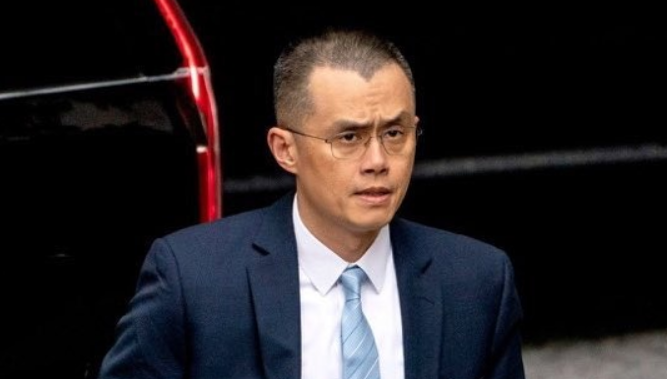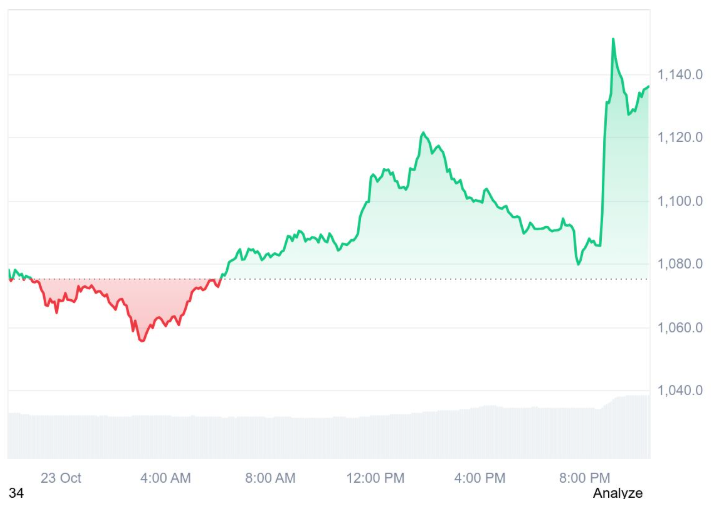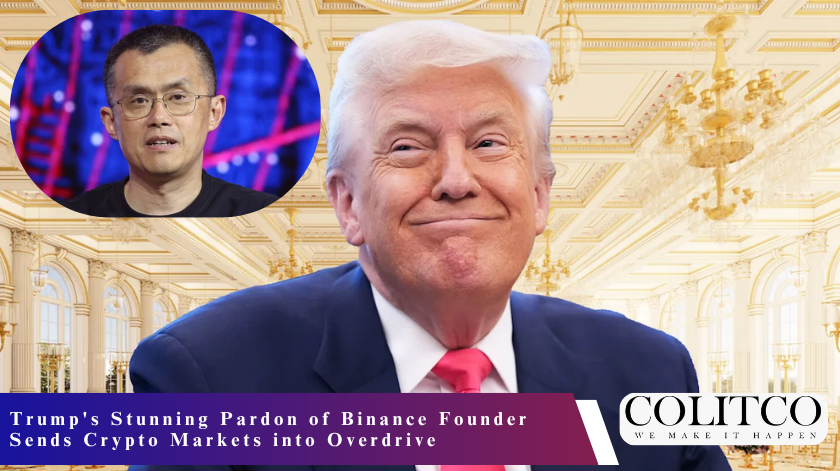President Donald Trump has granted a full pardon to Changpeng Zhao, the founder and former CEO of Binance, in a move that has sent shockwaves through global cryptocurrency markets.
White House Press Secretary Karoline Leavitt confirmed the decision on Thursday, stating Trump “exercised his constitutional authority” to pardon Zhao, who faced prosecution under the Biden administration.
The pardon arrives after months of speculation and marks another significant win for the crypto industry under Trump’s presidency.
The Man Behind the World’s Largest Crypto Exchange
Zhao, widely known as “CZ” in the crypto community, founded Binance in 2017. The platform quickly became the world’s largest cryptocurrency exchange by trading volume.

Changpeng Zhao, the founder and former CEO of Binance
His journey took a dramatic turn in November 2023 when he pleaded guilty to violating the Bank Secrecy Act. The charges centred on failing to maintain an effective anti-money laundering program at Binance.
As part of the plea deal, Zhao:
- Stepped down as Binance CEO
- Paid a USD 50 million personal fine
- Served four months in prison in 2024
- Watched Binance pay USD 4.3 billion in penalties
The settlement represented one of the largest corporate penalties in United States history.
Markets React with Explosive Growth
Financial markets responded swiftly to news of the pardon. BNB, the native cryptocurrency of Binance’s ecosystem, rocketed 15 per cent within hours of the announcement.
The token surged past USD 1,150, reflecting renewed investor confidence in Binance’s future. Trading volumes spiked dramatically as traders rushed to capitalise on the momentum.
“This is the clearest sign yet that the crypto industry has unprecedented favour under Trump’s administration,” Fortune reported.
A Pattern of Crypto Pardons Emerges
The pardon of the Binance founder represents the latest in a series of crypto-related clemencies. Trump has already pardoned:
Ross Ulbricht – Silk Road founder who was serving a life sentence for operating the dark web marketplace
BitMEX Founders – Arthur Hayes, Benjamin Delo, and Samuel Reed, who pleaded guilty to Bank Secrecy Act violations in 2022
The administration has also slashed enforcement units across multiple regulatory agencies including the Securities and Exchange Commission and the Department of Justice.
Trump’s sons, Eric and Donald Jr, have expanded the family’s crypto ventures, including World Liberty Financial, which reportedly worked with Zhao and Binance.
The Biden Administration’s “War on Crypto”
Leavitt framed the pardon in political terms, claiming “the Biden Administration’s war on crypto is over.”
“These actions severely damaged the United States’ reputation as a global leader in technology and innovation,” she stated.
Prosecutors under the previous administration accused Binance of operating what they described as a money laundering platform. Internal company communications revealed troubling attitudes towards compliance, according to court documents.
“We need a banner ‘is washing drug money too hard these days, come to binance we got cake for you,'” one compliance employee reportedly wrote.
What This Means for Binance’s Future
The pardon could potentially open doors for Binance to re-enter the United States market. The exchange has been operating under Department of Justice oversight following the 2023 settlement.
Richard Teng, a former financial regulator in the United Arab Emirates, replaced Zhao as CEO. Under Teng’s leadership, Binance has focused on regulatory compliance and rebuilding trust.
Industry analysts suggest the pardon may ease Binance’s path to:
- Resuming limited operations in the US
- Negotiating reduced compliance monitoring
- Attracting institutional investment
- Expanding partnerships with US-based entities
Zhao remains the largest shareholder in Binance, though whether he’ll return to an active role remains unclear.
Broader Implications for Crypto Regulation
Trump’s actions signal a dramatic shift in how the United States approaches cryptocurrency regulation. The president has issued executive orders establishing a strategic reserve for digital assets and Bitcoin.
His administration’s stated goal remains making America the “crypto capital of the world.”
The crypto industry poured millions into Trump-associated political action committees during his 2024 re-election campaign, marking a significant shift from his earlier scepticism about digital currencies.
Market Data and Future Outlook

As of Thursday afternoon, Binance-related tokens showed strong performance:
- BNB reached USD 1,150, up 15 per cent
- Trading volumes exceeded normal daily averages
- Market capitalisation gains across crypto assets
Bitcoin, while not directly affected, benefited from the positive sentiment surrounding regulatory relief.
The pardon raises questions about potential future clemencies. Speculation has mounted regarding other crypto figures who face legal challenges, though no official announcements have been made.
The Controversy Continues
Not everyone celebrated the decision. Critics argue that pardoning financial crimes sends the wrong message about accountability in the crypto space.
Consumer advocates worry that reduced enforcement could embolden bad actors in an industry already plagued by scams and fraud.
The timing has also raised eyebrows, coming shortly after reports suggested connections between Zhao’s team and Trump family crypto ventures.
Also Read: Woodside Strikes $378 Million Louisiana Deal That Could Reshape US Energy Supply
What Happens Next
For Changpeng Zhao, the pardon means a clean slate. His criminal record has been wiped, allowing him to conduct business operations in the United States without the burden of a felony conviction.
For Binance, the path forward involves continued compliance efforts while potentially exploring renewed American operations.
The broader cryptocurrency industry watches closely, wondering if this represents a permanent shift in regulatory approach or a temporary political favour.
One thing remains certain: Trump’s pardon of the Binance founder has permanently altered the landscape of crypto regulation in America.





